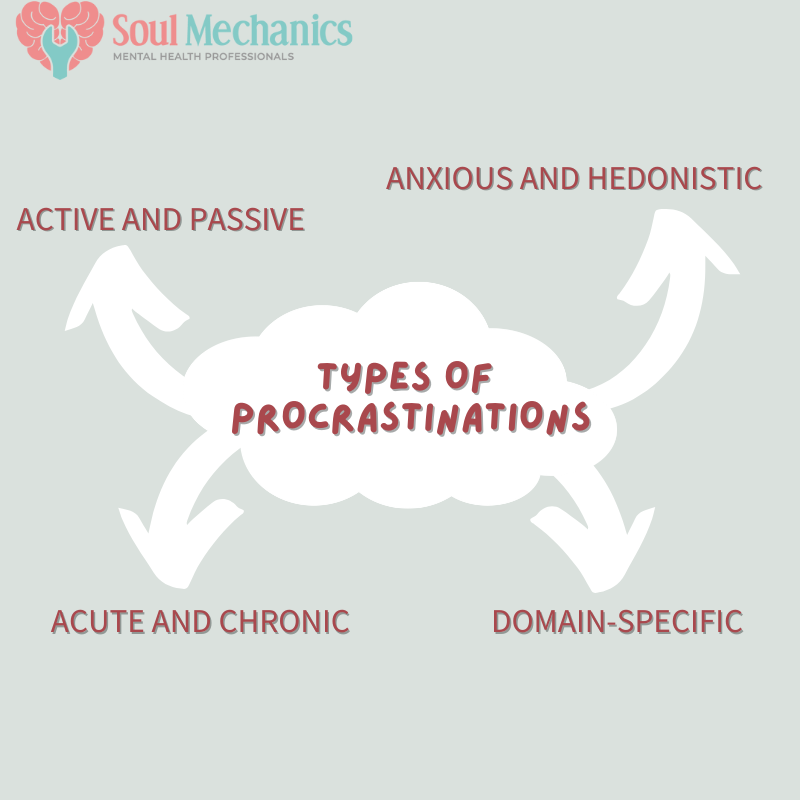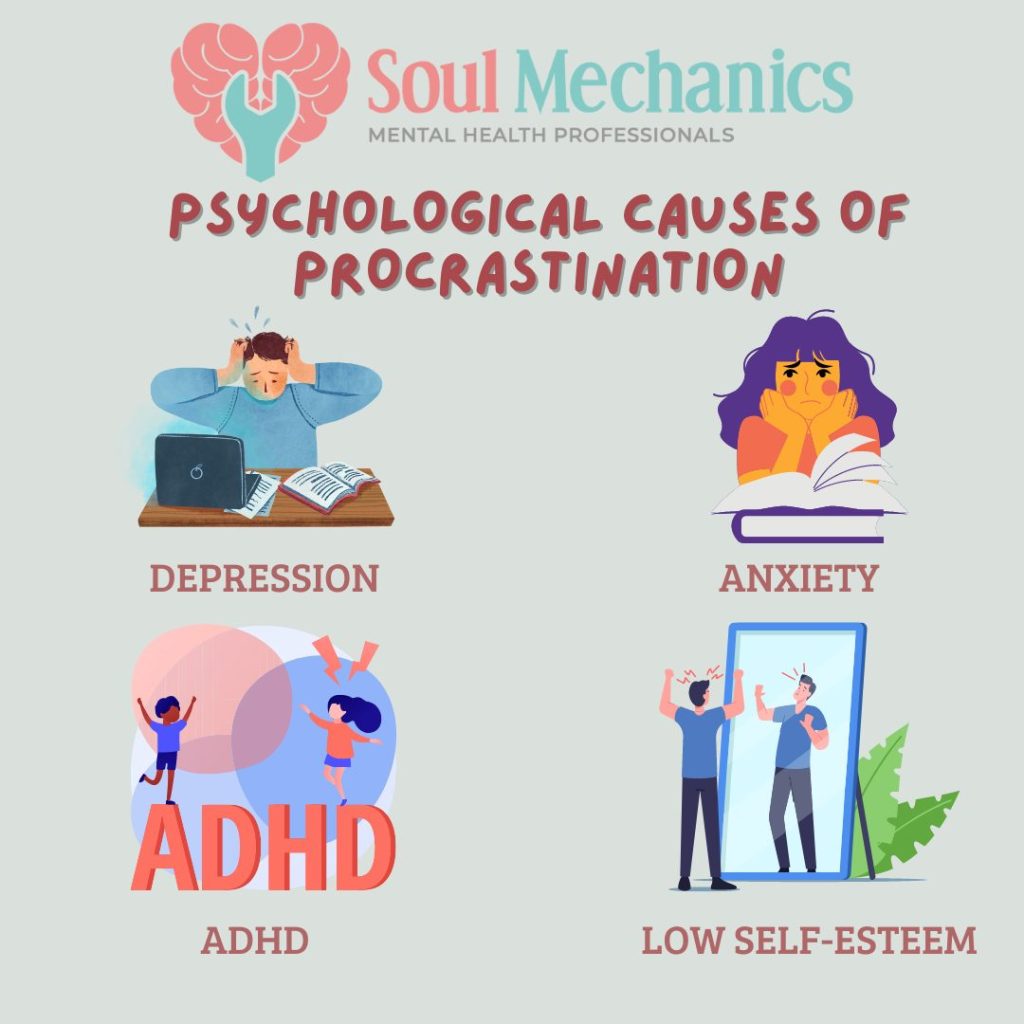Procrastination Vs Laziness
Procrastination Vs Laziness
We often find ourselves confused and mistakenly assume that procrastination is synonymous with laziness or believe that procrastination often stems from laziness. These misconceptions may lead to difficulties such as feeling guilty and experiencing difficulties in overcoming procrastination.
What is Laziness?
Laziness can be defined as a voluntary unwillingness to exert effort on a task. We need to understand that laziness is associated with lower conscientiousness. When there is a lack of conscientiousness, we may experience laziness that can result in avoiding tasks that require effort from us. It is also crucial for us to understand that laziness is different from lack of motivation. We can be highly motivated to achieve a goal but still fail to take action towards achieving the goal due to avoidance of effort. Besides laziness getting associated with a lack of motivation, we must also avoid associating laziness with a lack of self-control as well as we may possess strong self-control to resist distractions but still struggle to pursue our goals due to our unwillingness to exert effort to achieve our goals.
What is Procrastination?
Procrastination, on the other hand, is a widespread phenomenon that many of us experience, students in particular. We need to understand that it is linked to a range of issues that can affect our lives. These include poor employment and financial status, decreased academic performance, compromised mental and physical health, diminished emotional well-being, and delays in seeking treatment for any problems we may face. We can often find ourselves engaging in procrastination, which involves unnecessarily postponing actions and decisions.
How severe is it?
There can be different severity levels to procrastination such as mild, average and severe. The severity can be measured by considering the following factors:
- Frequency
- Duration
- Impact

Type of Procrastination
- Acute and Chronic
Procrastination can be categorized into two forms. Acute procrastination refers to short-term delays that are confined to a specific period. On the other hand, chronic procrastination persists in the long term, becoming a recurring pattern in our lives. - Anxious and Hedonistic
Anxious procrastination involves situations where we postpone tasks despite being aware that such delays are irrational and counterproductive. We may have the intention to work on them but still struggle to start. Hedonistic procrastination occurs when we voluntarily postpone tasks by prioritizing leisure activities or even taking accountability for the task at hand. - Active and Passive
Active procrastination is the deliberate action of postponing that leads to positive results while passive procrastination is involuntary postponing that leads to negative results. - Domain-specific
Procrastination can occur in specific areas of our lives. For instance, there are academic procrastination, workplace procrastination, and bedtime procrastination.

Why do we procrastinate?
Many of us are often aware that our delayed behavior is detrimental to us, yet we find ourselves unsure of how to overcome it. It involves unnecessary and often unintentional delays, which typically result in adverse outcomes. As procrastinators, we experience a stronger irrational drive to delay taking action compared to the drive to act. The drive to delay is the motivation to avoid taking action at the moment while the drive to act represents the motivation to take action at the moment.
Everyone procrastinates, but not everyone is a procrastinator.
Joseph Ferrari, DePaul University in Chicago
Chronic Procrastination is often a sign of an underlying and unresolved emotional problem.
Nathaniel Cilley, Licensed Mental Health Counselor, New York City
Our emotional triggers play a significant role in how we feel which in turn, influences our behavior. However, it is common for us to mistakenly view procrastination as our only issue and avoid recognizing the connection it may have to our deeper emotional challenges.
We often procrastinate for a variety of reasons. These can include an aversion to the task, frustration, self-doubt, anxiety, and a fear of failure. Sometimes, procrastination may initially manifest as a mental health issue. In fact, it can be intertwined with various mental health conditions such as attention deficit hyperactivity disorder (ADHD), eating disorders, anxiety, depression and perfectionism, as it becomes an avoidance strategy for coping with these challenges.
How does Counseling help?
Counseling can be a great help to address our procrastination issues. Working with a mental health counselor or therapist can be beneficial as they will be able to assist in identifying the underlying causes behind our actions and explore the potential connections to our procrastination tendencies. Through deeper exploration, counselors will help us uncover our behaviors' underlying emotions. Through therapy, we will be able to address our irrational thoughts such as "should" and "must" statements, low frustration tolerance, self-criticism, and catastrophizing thoughts.
Fear of failure is a common reason, often leading us to interpret failure as a reflection of our inherent worth. Therapy can help us take responsibility for our behavior and recognize that we can change it. Our counselor will be able to support us in becoming more aware of the discomfort we are avoiding and help us navigate the feelings associated with our procrastination and avoidance patterns. Once we identify our irrational beliefs and possess coping as well as emotional regulation skills, incorporating rewards and consequences becomes a useful tool for motivating ourselves when combating procrastination.
Conclusion
Practicing self-compassion allows us to learn to forgive ourselves and grant permission to prioritize self-care and find approaches that work best for us. We need to recognize that procrastination only perpetuates the cycle of avoidance and reinforces unhelpful behaviors. During our therapy sessions, we can acquire strategies that are more effective than avoidance. One such strategy involves breaking tasks into smaller, realistic, attainable, and manageable steps. By establishing smaller goals, we can experience success and gradually build motivation. Moreover, our counselors will be able to guide us in identifying optimal times to tackle tasks that we have been avoiding, thereby reducing the likelihood of avoidance.


Comments (2)
Detailed n informative…. br
Thank You